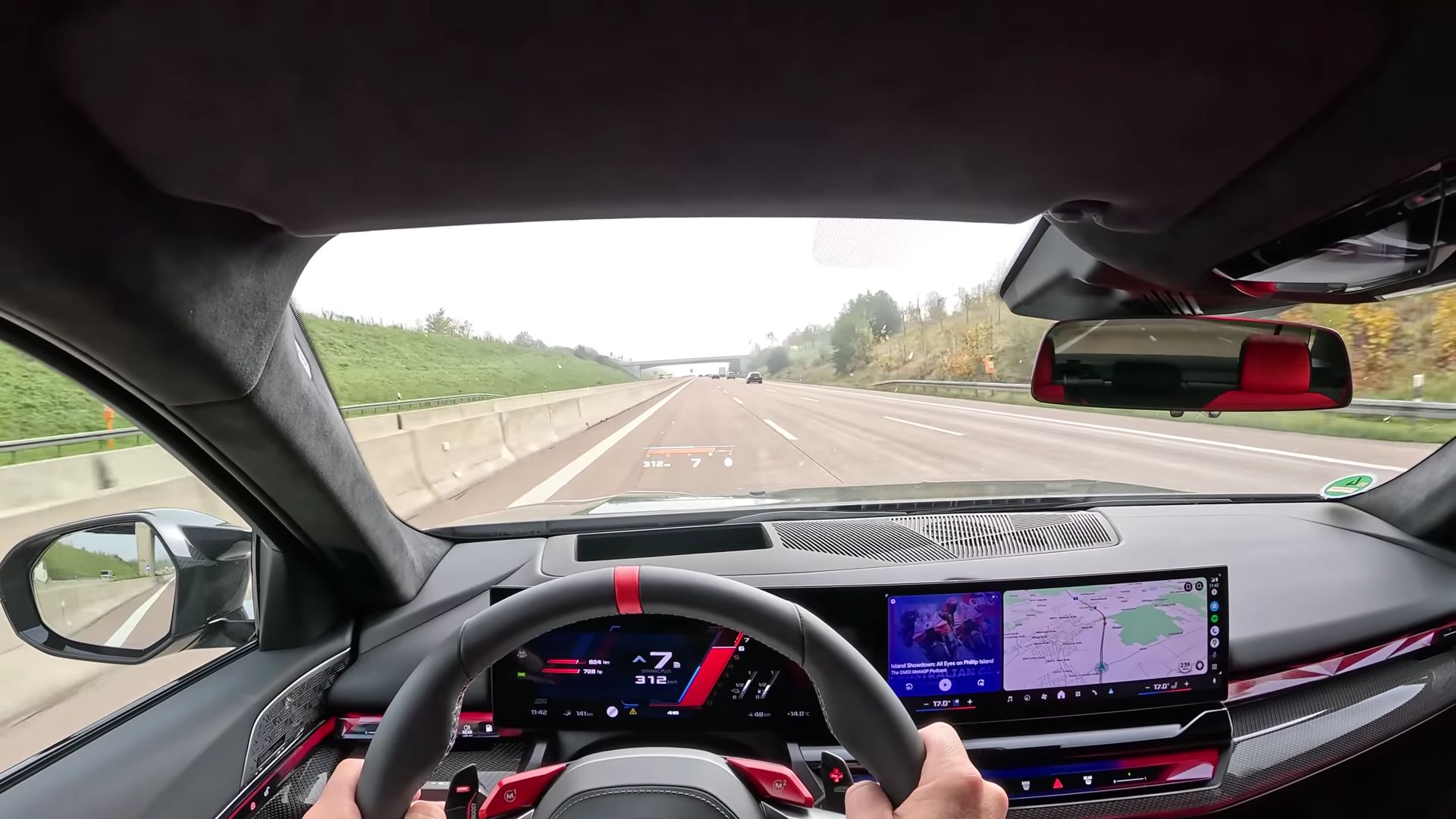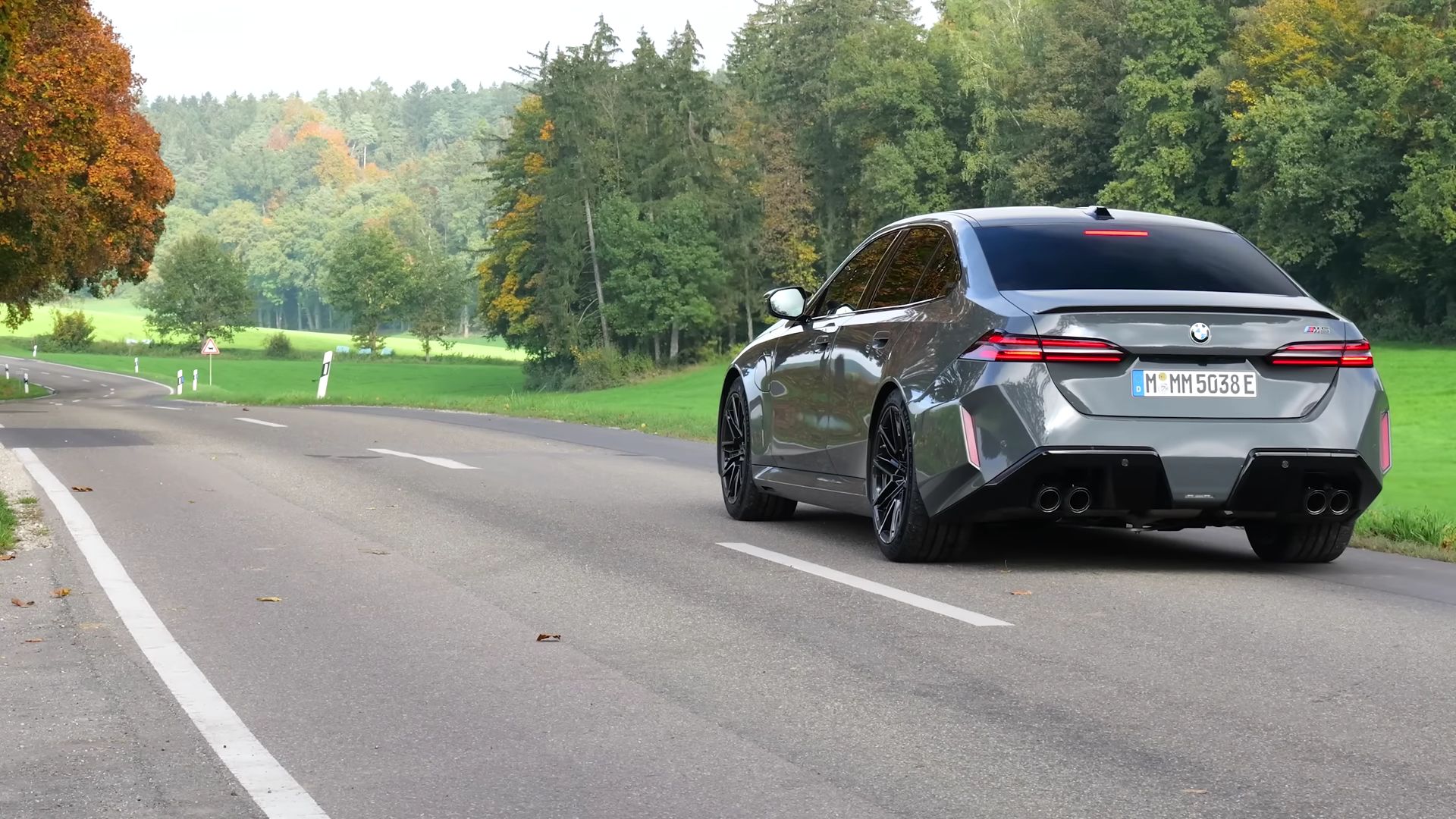The BMW M5, a long-standing icon of German performance, has recently taken a controversial turn. The seventh-generation model, revealed in June 2024, marks the introduction of a plug-in hybrid powertrain. While this move was driven by stringent emissions regulations and the pursuit of increased performance, it has also resulted in a significant weight gain.
The US-spec G90 M5, for instance, tips the scales at a hefty 5,390 pounds. Even though the extra weight might not be a major issue in straight-line acceleration, it undoubtedly impacts the car’s dynamic abilities.

Despite the hybrid powertrain, the G90 M5’s 0-60 mph time is slower than its predecessor. BMW claims a 3.4-second sprint to 60 mph, while the previous-generation M5 could achieve this in 3.2 seconds. Even the higher-performance Competition and CS variants of the F90 M5, with their claimed 3.1 and 2.9-second times, offer quicker acceleration.
However, it’s well-known that BMW’s M division often understates the performance figures of its vehicles. Recent independent tests of the G90 M5 have revealed that the car can actually accelerate to 60 mph in an astonishing 3.12 seconds, significantly faster than the official figure. This suggests that the true potential of the hybrid M5 is far greater than what BMW initially claimed.
The M5 G90 is a testament to BMW’s engineering prowess. Achieving a 0-60 mph sprint in just 3.12 seconds on a public German road, not a controlled test track, is astonishing. This remarkable feat is made possible by the combination of a potent twin-turbo V8 engine and an electric motor, delivering instantaneous torque.

BMW’s meticulous calibration of launch control further enhances the car’s acceleration capabilities. Moreover, there’s speculation that the engine and motor might be even more powerful than their official ratings suggest, as evidenced by dyno tests. With a top speed exceeding BMW’s claimed figure, the M5 G90 is not only incredibly fast but also incredibly impressive.

